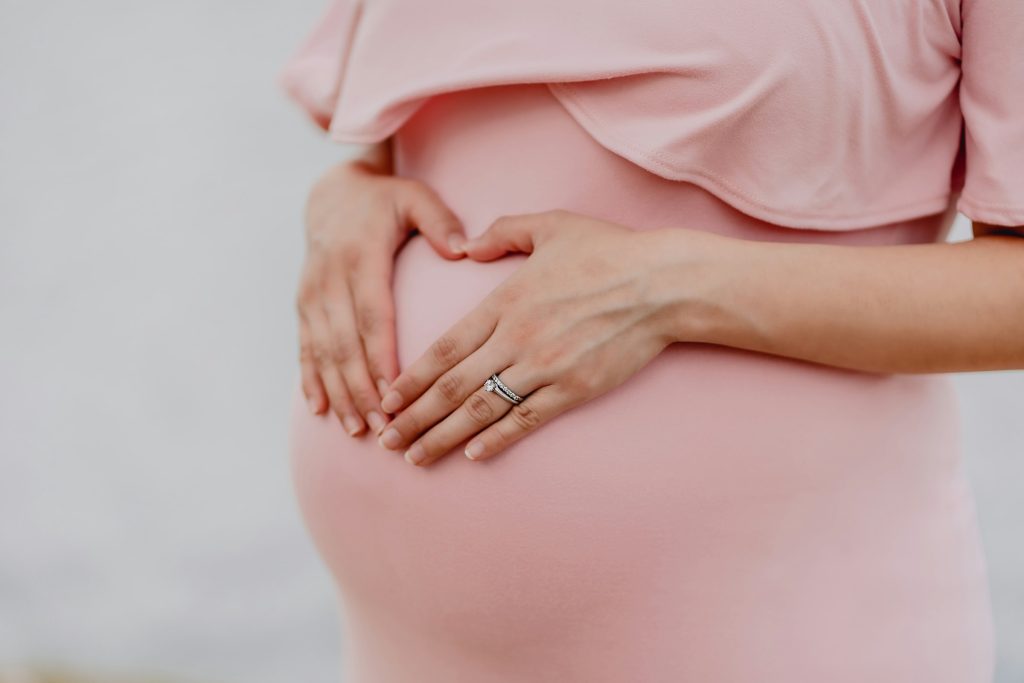Young patients with the gBRCA1/2 mutation can become pregnant without any concerns.
Cancer

A pregnancy does not pose an increased risk for mother and/or child for young former breast cancer patients with pathogenic gBRCA1/2 detection after successful treatment.
Prof. Dr. Dr. Matteo Lambertini from the University of Genoa spoke about important findings for fertility counseling for individuals with early-stage breast cancer and pathogenic BRCA1/2 germline mutations (gBRCA1/2). Until now, evidence for these patients has been limited. The focus of an international multicenter retrospective cohort study was on the following questions:
– How likely is pregnancy after successfully treated breast cancer in young patients with pathogenic gBRCA1/2 mutations?
– Does treatment affect their fertility?
– Does prognosis worsen with pregnancy?
Between January 2000 and December 2020, researchers included a total of 4,732 patients (≤ 40 years) with stage I-III invasive breast cancer and pathogenic gBRCA1/2 mutations after completing treatment in the study. Primary endpoints included cumulative pregnancy rate and disease-free survival (DFS). To mitigate the effects of time distortion on the outcome, two analyses were conducted using different methods: an extended Cox model and a matched case-control analysis.
659 patients became pregnant after breast cancer. Compared to the non-pregnant cohort, they were more likely to have pathogenic gBRCA1 mutations, were younger at initial diagnosis (median 30 vs. 35 years), had no lymph node involvement, and had negative HR status.
Just under 80% of the pregnant women (79.7%) delivered normally, 9.7% experienced miscarriage, and nearly 4% were still pregnant at the time of evaluation. The complication rates during pregnancy and childbirth were low. 91% of patients delivered after ≥ 37 weeks, and in 9% of cases, there was premature birth. Only four children (0.9%) were born with a congenital abnormality.
Individuals with HR- tumors were more likely to become pregnant. Within ten years, the cumulative pregnancy rate was 22%. At 26% versus 18%, it was significantly higher in the group of patients with HR- tumors compared to those with HR+ status (p <0.01). HR- patients also became pregnant more quickly – after a median of 3.2 years from breast cancer diagnosis compared to 4.3 years (p <0.01).
Pregnancy had no negative impact on the mother’s prognosis. Compared to the non-pregnant cohort, there were no disadvantages in terms of DFS (HR 0.97; p = 0.74 or adjusted HR 0.99; p = 0.90; matched analysis: HR 0.63). Furthermore, individuals in the pregnant cohort had a longer breast cancer-specific survival (HR 0.53 or aHR 0.60; both p <0.01; matched analysis: HR 0.43) and better overall survival (HR 0.52 or aHR 0.58; both p <0.01; matched analysis: HR 0.43).
Speaker concludes with an overall positive assessment. According to Prof. Lambertini, pregnancy in young patients with early-stage breast cancer and evidence of pathogenic gBRCA1/2 mutations is not contraindicated after completion of treatment. The complication rate during pregnancy and childbirth is not increased. The mother’s prognosis is not negatively affected by pregnancy.
Source: Lambertini M et al. SABCS 2023; Abstract GS02-13
Medical Tribune, Birgit-Kristin Pohlmann, 22.01.2024